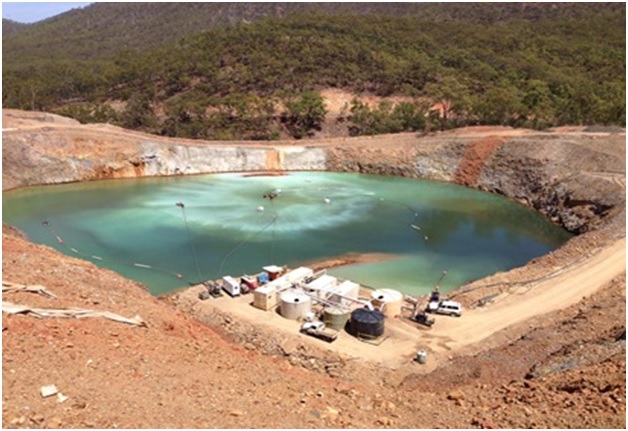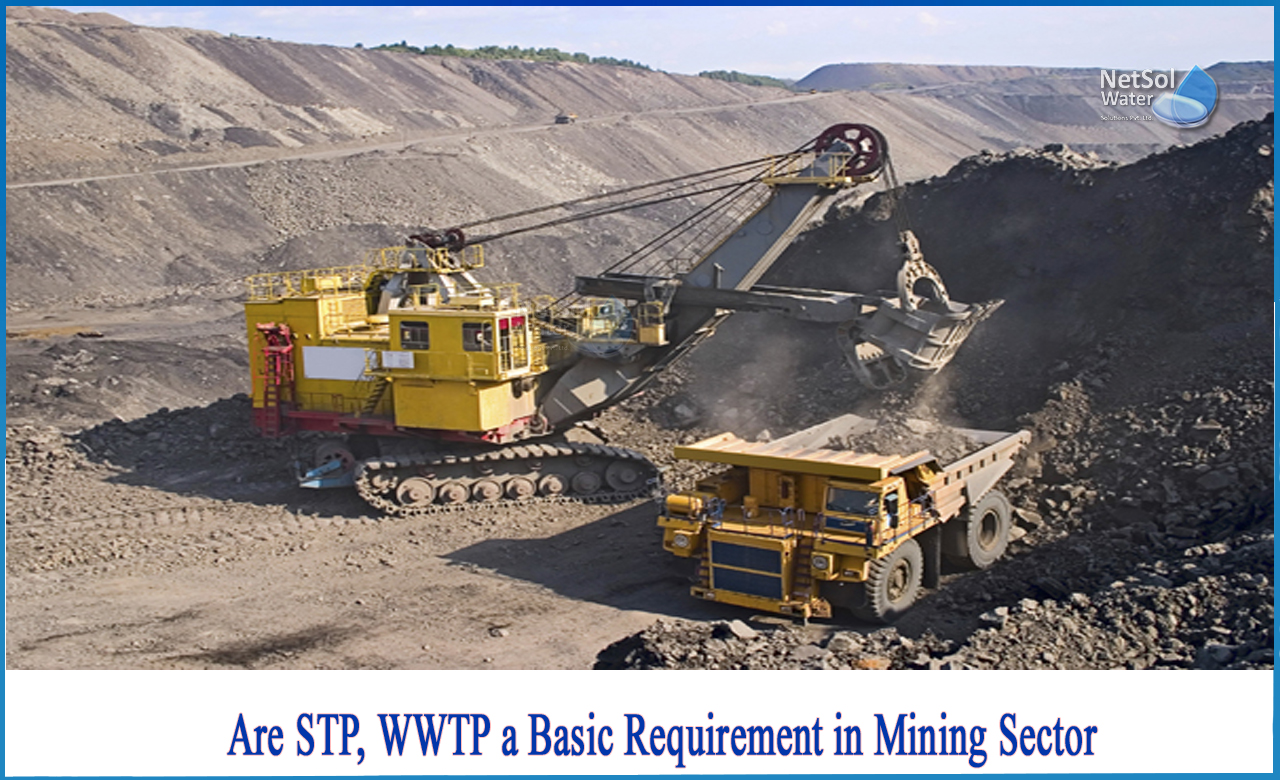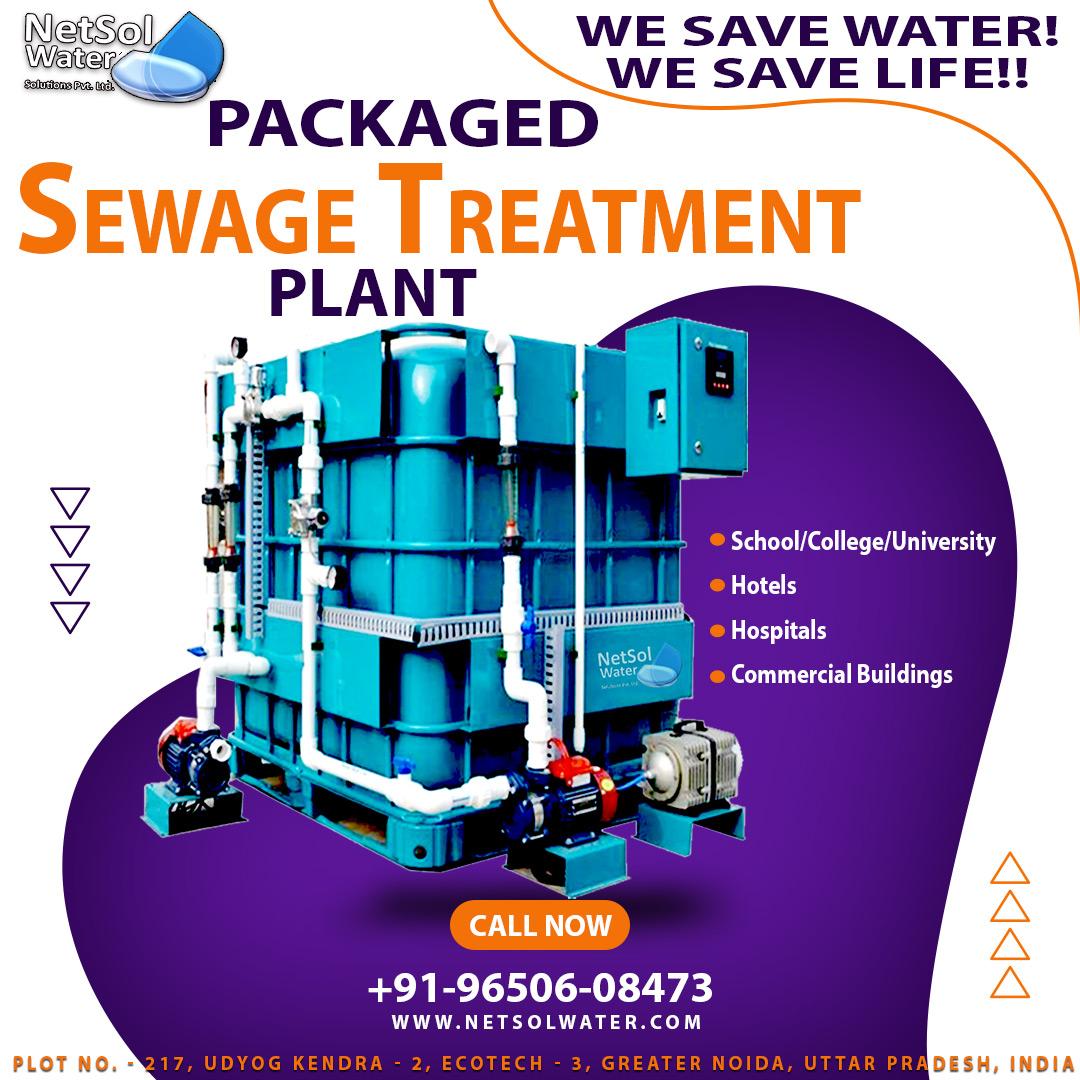Are STP, WWTP a basic requirement in mining sector?
Mining is a water-intensive industry that produces hundreds of millions of tonnes of wastewater each year. Sludge is a semi-solid byproduct of wastewater treatment, and reducing its production has significant environmental and economic benefits.
Techniques and technologies for reducing and treating contaminants in wastewater will assist mining companies in improving their water management practices and becoming more sustainable.

Water is essential in all types of mining. Significant rainfall in some areas can cause acid runoff from mine drainage, tailings piles, and surface mines, polluting streams and rivers. Mining and processing of ores in arid areas can have a two-pronged impact on local water supplies, depleting groundwater and polluting aquifers.
Mining wastewater, in general, can be highly acidic and high in suspended solids. Organic compounds, metals, heavy metals, and metalloids such as arsenic, iron, and manganese are common contaminants. In some mining operations, particularly those involving coal, wastewater can be unacceptably saline, necessitating desalination.Because mining wastewater is so variable, so are treatment strategies, which typically include several stages and technologies.
For mining applications, wastewater treatment is critical
Water is essential to the mining industry because it is used in mineral processing to recover valuable metals from ore. Using water in this manner, on the other hand, causes mineral contaminants and other solids to accumulate in your process water supply. Without treatment, this results in contaminated mining wastewater that cannot be reused or returned to the environment due to community health concerns and environmental regulations. As a result, mining operations require a consistent and dependable source of clean water to keep operations running.
While some mining operations may choose to pay a third party to transport their wastewater, hauling waste sludge is inefficient and expensive. Retention ponds are another option, but their effectiveness deteriorates over time as they become dirtier, resulting in a poor Return on Investment (ROI).
Instead, treating the water on-site with chemicals and filtration methods can result in a variety of advantages, including:
· Cost savings that are significant
· Complete control over the treatment process and long-term viability
· The ability to reuse treated water maximum water recovery with a nearly closed-loop solution
This is especially true now, as demand for lithium and other metals used in electronics and energy storage is increasing. To meet this demand with profitable and energy-efficient mining operations, water and energy challenges must be addressed head on.
Why mining Wastewater should be treated?
There are a number of water-related issues that can jeopardize the efficacy of a mining site if proper wastewater treatment is not implemented. This is due to the fact that mining wastewater and tailings are frequently very acidic and high in suspended solids.
The following issues persist in uncontrolled mining applications:
· Mine drainage and tailings piles produce acidic runoff.
· Contamination of groundwater
· Extremely saline waste
· Toxification of the aquifer
These issues are exacerbated by the fact that many otherwise profitable mine-mills are located in areas with already depleted water supplies. Mining activities in these areas degrade the little fresh water that exists.
The best course of action, both environmentally and operationally, is to avoid contaminating outside water sources and to reuse mining wastewater as much as possible safely. Fortunately, advanced wastewater treatment solutions allow mining wastewater to be reused for mining, irrigation, and even drinking water.
Wastewater/ Sewage Treatment Plant
Not only are many productive mines located in areas with depleted water supplies around the world, but mining activity has also contributed to the degradation of what little fresh water is available. Mining companies can use advanced wastewater treatment solutions that produce water suitable for reuse to prevent further environmental contamination. As mining wastewater can be highly variable, various treatment solutions and mechanical filtration methods are available, WWTP from companies like Netsol Water Solutions is one such method.




